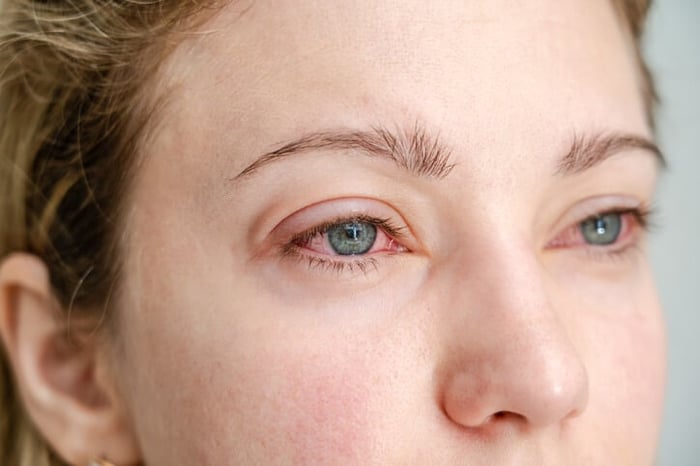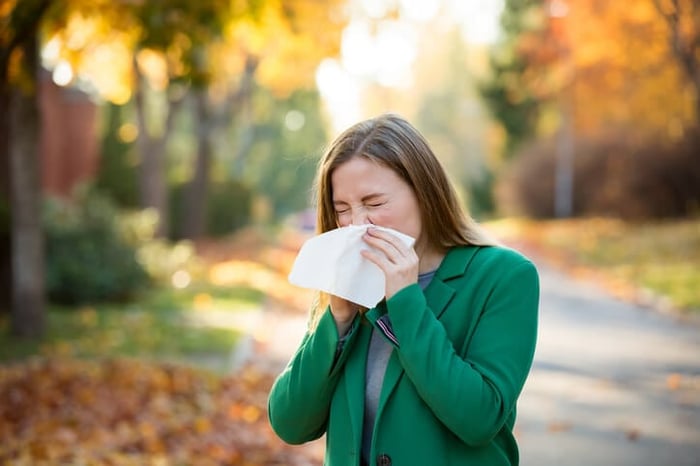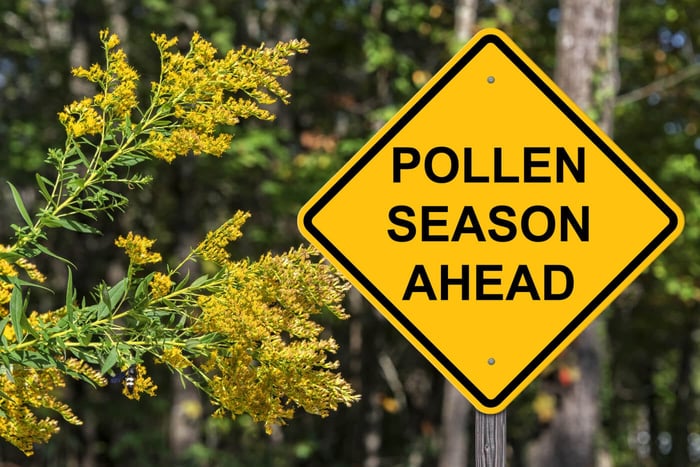Fall is a beautiful time of year—but for many, fall also brings sneezing, itchy eyes, and runny noses. Yes, we’re talking about seasonal allergies!
Here’s everything you need to know about what causes those annoying symptoms and how to manage them naturally.
What Are Seasonal Allergies?
Seasonal allergies, also known as hay fever, happen when your body reacts to things that trigger an immune response. This causes the body to release chemicals such as histamines, leukotrienes, and prostaglandins, making our eyes water, nose run, sneezing, and coughing.*†
In the fall, ragweed is one of the biggest allergy triggers. It releases tiny pollen particles that float through the air, causing trouble for people sensitive to it. On average, if you have allergies in the spring, you’ll likely have allergies in the fall. *†
What Are The Symptoms?

Not sure if you’re dealing with allergies or a cold? Here are some common signs to look for to help you pinpoint what’s causing your symptoms:*†
- Congestion
- Sneezing
- Itchy eyes, nose and throat
- Runny nose and eyes
- Post nasal drip (drainage in the throat)
- Fatigue
- Coughing
Helpful Ways to Manage Fall Allergies
Thankfully, there are natural ways to help manage fall allergies. Let’s take a look at some simple solutions:
- Keep windows and doors closed. This can help prevent any outside pollen or dust from entering your home.*†
- Wash hair before sleep. Cleaning yourself of any allergens that may have been caught in our hair or on your skin can help keep them out of your bed.•T
- Immune-supporting nutrients:*†
- Quercetin: Studies show quercetin prevents immune cells from releasing histamines, which are chemicals that cause allergic reactions and may help reduce symptoms of allergies.
- Bromelain: Helps support the inflammatory response and respiratory distress commonly brought on by allergic reactions.
- Zinc: Multiple studies have shown that a zinc deficiency can lead to higher occurrences of asthma and allergy symptoms.




